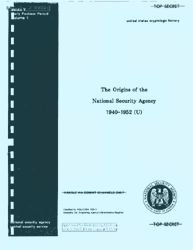One of these new political ideas was liberalism. Liberalism
owed much to the Enlightenment of the eighteenth
century and the American and French Revolutions that
erupted at the end of that century. It became increasingly
important as the Industrial Revolution progressed because
the emerging middle class largely adopted the idea
as its own. Opinions diverged among people classified as
liberals, but all began with a common denominator, a
conviction that in both economic and political terms,
people should be as free from restraint as possible. Economic
liberalism, also known as classical economics, was
based on the tenet of laissez-faire—the belief that the
state should not interfere in the free play of natural economic
forces, especially supply and demand. Political
liberalism was based on the concept of a constitutional
monarchy or constitutional state, with limits on the
powers of government and a written charter to protect
the basic civil rights of the people. Nineteenth-century
liberals, however, were not democrats in the modern
sense. Although they held that people were entitled to
equal civil rights, the right to vote and to hold office
would be open only to men who met certain property
qualifications.
Nationalism was an even more powerful ideology for
change in the nineteenth century. The idea arose out of
an awareness of being part of a community that had common
institutions, traditions, language, and customs. In
some cases, that sense of identity was based on shared
ethnic or linguistic characteristics. In others, it was a consequence
of a common commitment to a particular religion
or culture. Such a community came to be called a
“nation,” and the primary political loyalty of individuals
would be to the nation rather than to a dynasty or a citystate
or some other political unit. Nationalism did not
become a popular force for change until the French Revolution,
when the concept arose that governments
should coincide with nationalities. Thus a divided people
such as the Germans wanted national unity in a German
nation-state with one central government. Subject
peoples, such as the Hungarians, wanted national selfdetermination,
or the right to establish their own autonomy
rather than be subject to a German minority in a
multinational empire.
Liberalism and nationalism began to exert a measurable
impact on the European political scene in the 1830s,
when a revolt led by progressive forces installed a constitutional
monarchy in France, and nationalist uprisings,
often given active support by liberal forces, took place in
Belgium (which was then attached to the Dutch Republic),
in Italy, and in Poland (then part of the Russian Empire).
Only the Belgians were successful, as Russian forces
crushed the Poles’ attempt to liberate themselves from
foreign domination, while Austrian troops intervened in
Italy to uphold reactionary governments in a number of
Italian states.
In the spring of 1848, a new series of uprisings against
established authority broke out in several countries in
central and western Europe. The most effective was in
France, where an uprising centered in Paris overthrew the
so-called bourgeois monarchy of King Louis Philippe and
briefly brought to power a new republic composed of an
alliance of workers, intellectuals, and progressive representatives
of the urban middle class.




 World History
World History









